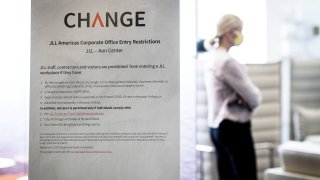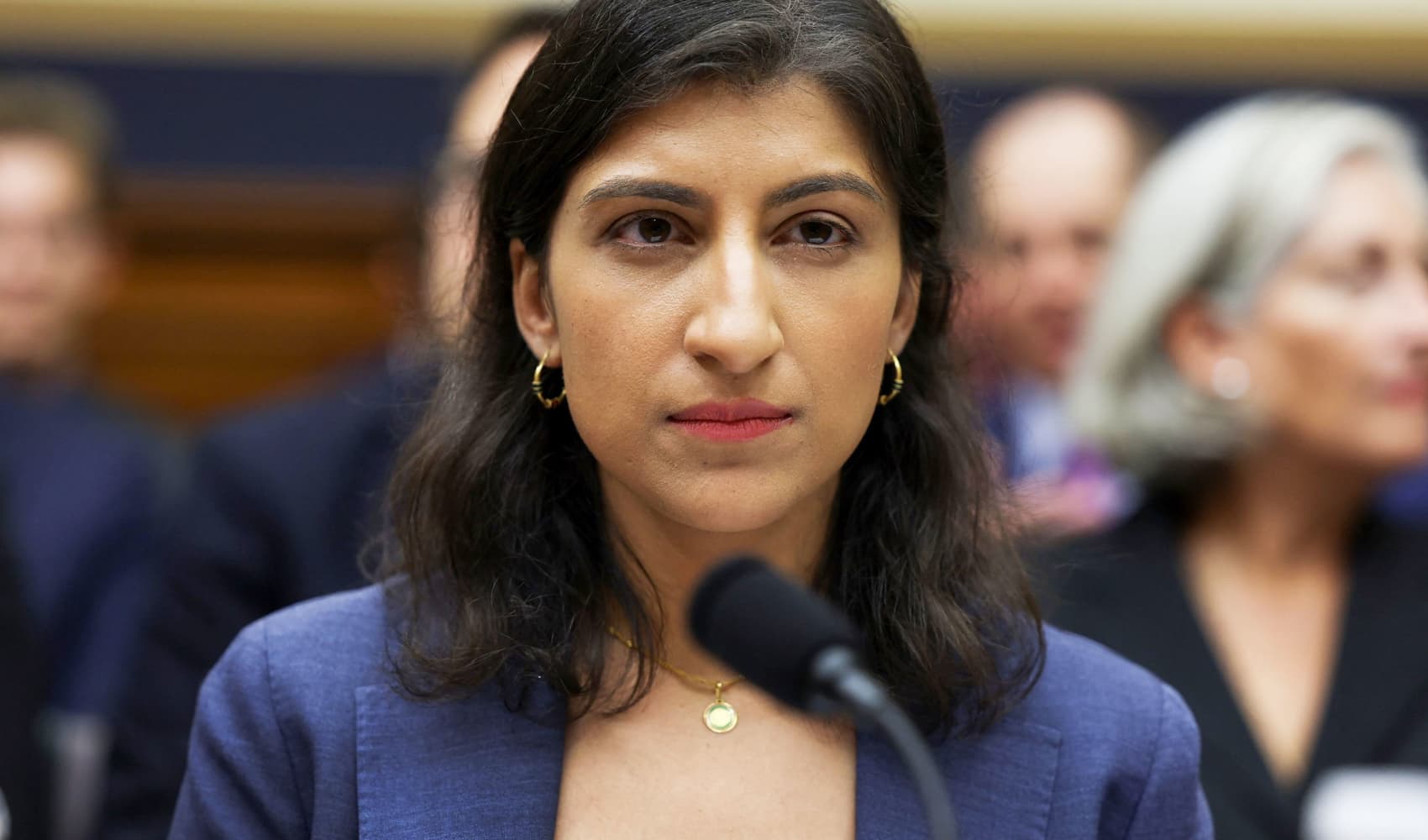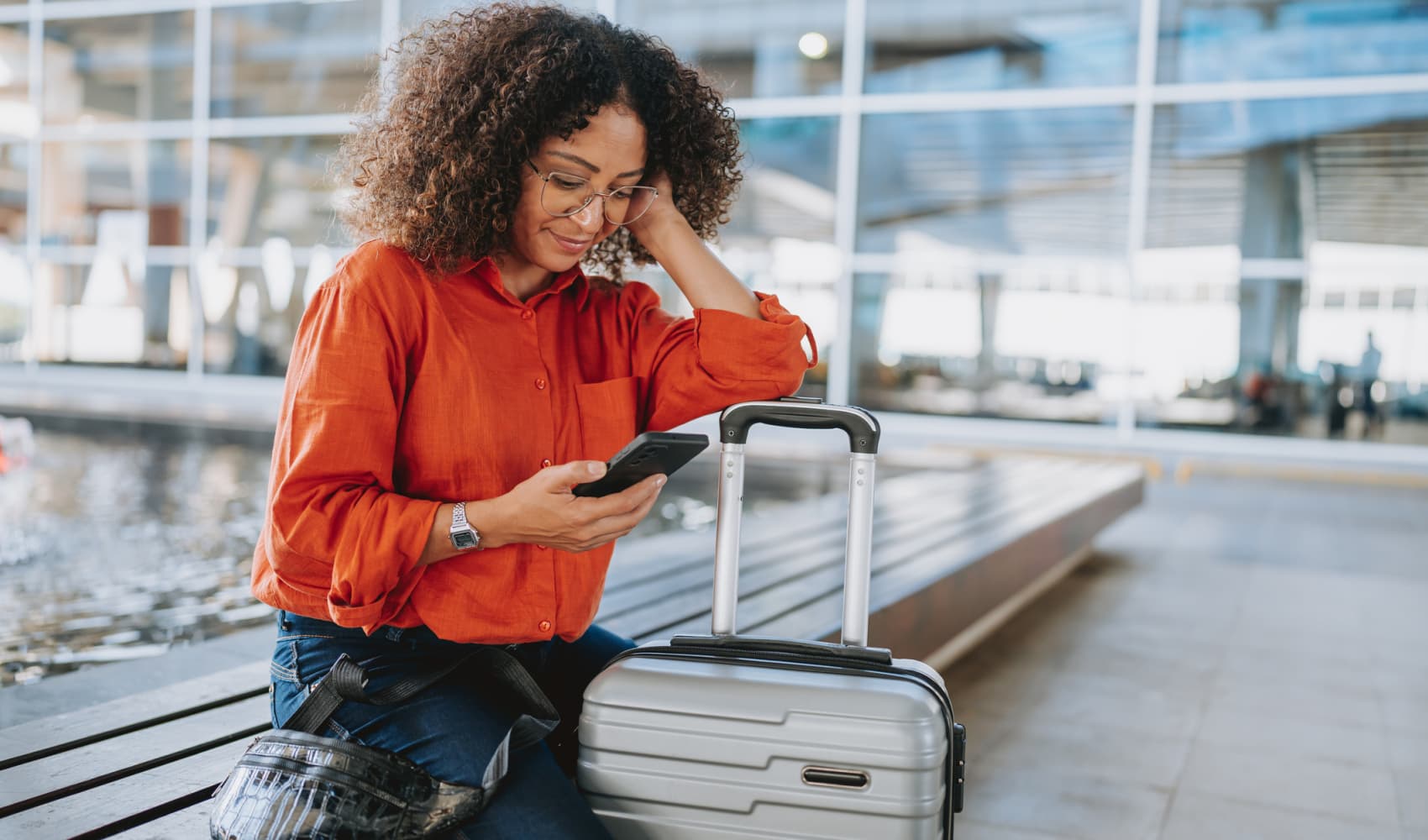
- A new survey conducted by the National Retail Federation and Prosper Insights & Analytics points to the challenges that employers may face as they try to get their employees to return to the workplace and try to hire more staff.
- Nearly half of employed consumers surveyed said they need to get a Covid-19 vaccination before feeling comfortable working around others, followed by 35% who said co-workers would need to be vaccinated, too.
- Yet 1 in 10 employed consumers said nothing would make them feel comfortable working in an environment around other people, according to the survey.
One in 10 employed consumers in the U.S. say that nothing would make them feel comfortable working in an environment around other people, according to a new survey.
The findings point to lingering anxieties about the Covid-19 pandemic and challenges that companies may face as they try to convince employees to return to the workplace and look to hire more workers. The National Retail Federation and Prosper Insights & Analytics polled nearly 8,000 people across industries this month.
Other consumers surveyed, however, shared precautions that could help put them at ease. The largest group — 48% of respondents — said that they needed to be vaccinated to feel comfortable returning to work and interacting with others. That was followed by 35% who said their co-workers would need to be vaccinated, 34% who said they would need social distancing at work and 33% who said their workplace would have to have mandatory mask-wearing. Nearly a third of those polled said they would need wide availability of the vaccine to the public and a requirement for sick employees to stay home.
Get South Florida local news, weather forecasts and entertainment stories to your inbox. Sign up for NBC South Florida newsletters.
Even those who said they were vaccinated or plan to get vaccinated said in the survey that they want their company to take additional measures, such as providing enough room to spread out from co-workers.
More Americans have gotten vaccinated and fewer have gotten sick from Covid in recent weeks. More than 46% of the U.S. population has received one or more shots and 35% is fully vaccinated as of Tuesday, according to the Centers for Disease Control and Prevention. The average daily rate of Covid cases fell to about 38,000 on Tuesday, according to data compiled by Johns Hopkins University — and on Monday it dropped below 40,000 for the first time since September.
Deaths have declined steeply in the U.S., too. At its winter peak, about 3,000 deaths were recorded daily. The latest seven-day average of daily Covid deaths in the U.S. is 608, according to Johns Hopkins data.
Money Report
The country hit another notable milestone on Monday: The Food and Drug Administration approved Pfizer and BioNTech's request to allow the companies' Covid-19 vaccine to be given to kids ages 12 to 15 on an emergency use basis. That clears the way for many kids to get vaccinated ahead of the start of school in the fall.
David French, senior vice president of government relations of the NRF, said the trade group has fielded many questions from its retail and restaurant members about how best to bring people back and at what pace. He said its 16,000 members have also spoken about the struggle to find job candidates to fill openings as they prepare for customers to return to stores, restaurants, vacation spots and more.
"There are really two different return-to-work questions," he said. "There's the return-to-work question about 'How do we get people who are not working back into jobs?' and then 'How do we get people who are working, but working in a remote location, back into the office?'"
He said the survey focused on answers to the latter question — but also sheds light on some pandemic-related factors that may be causing some unemployed Americans on opt out on rejoining the workforce. Economists were recently surprise by a jump in the unemployment rate to 6.1% in April. They had been expecting to see a surge in hiring.
However, he said, it does not address another dynamic that the NRF believes is playing a role, too: A $300 weekly supplement to unemployment benefits.
The April jobs report has sparked debate about why some people have remained unemployed, even as the economy reopens, the vaccination rate increases and more employers look for workers. Some Republicans and business groups, including the U.S. Chamber of Commerce, have criticized the federal boost in unemployment payments and said it has fueled a labor shortage as people choose to stay on the sidelines. Others have pointed to different reasons that people are opting out, from a lack of child care and remote school to fears of getting Covid-19 or giving it to a family member.
The tight labor market has inspired some restaurants to boost their pay or add perks. Chipotle Mexican Grill said Monday that it will raise restaurant workers' pay to an average of $15 an hour by the end of June. It is also dangling referral bonuses of hundreds of dollars for employees who help it find new managers and team members. The chain is looking to hire 20,000 new workers across the country.
Convenience store chain Sheetz is also increasing its wages, after struggling to find workers. It will permanently raise wages by $2 an hour. It will pay an additional $1 an hour as a "summer stimulus" from May 21 to Sept. 23. That will amount to a new minimum wage of $13.50 for store employees and $16.50 for store supervisors. The average wage across all store employees will be $15.50 for store team members and $18.50 for supervisors.
As the spring and summer travel season heats up, the company wants to hire more than 2,000 employees to check out customers, keep snacks stocked and coffee hot as more people hit the road again and more frequently stop by to fill up their cars with gas. The retailer has 621 stores throughout Pennsylvania, Maryland, Virginia, Ohio, West Virginia and North Carolina.
Travis Sheetz, chief operating officer of the privately held company, said Sheetz typically adds staff this time of year. This spring, however, he said the company received just a small stack of job applications. Few people showed up to its hiring day in late March. Those who did tended to have narrower availability of hours when they could work.
He said that shallow pool of candidates stems from "a number of things colliding." Among them, he said, people feel nervous about Covid. They're coping with remote school and child-care challenges. And they're receiving supplemental income from stimulus and unemployment.
That juggle has led some to ask themselves "'How can I take this on right now?'" he said.
"We have a combination of expecting business to peak even greater this summer because people are just anxious to get out and at the same time, we're operating in probably the toughest labor environment in the last 20 years," he said.
With the pandemic, he said employers will have to make a stronger case to job candidates and make sure employees feel both safe and valued — particularly for front-line jobs that require interactions with strangers.
For example, he said, Sheetz temporarily increased pay for its workers during the height of the pandemic. It has added a parental leave policy with 12 weeks of paid time off for new moms and two weeks of paid time off for their partners. And it's keeping safety measures like having wellness checks and quarantine pay for employees.
Yet even behind a plexiglass screen or a face mask, he said a job in retail is one that stands apart.
"The stories that you hear across the counter and from people and you getting close to your customers and your communities, that's just very difficult to get sitting in an office job or in a warehouse," he said. "You really can't replace that."






